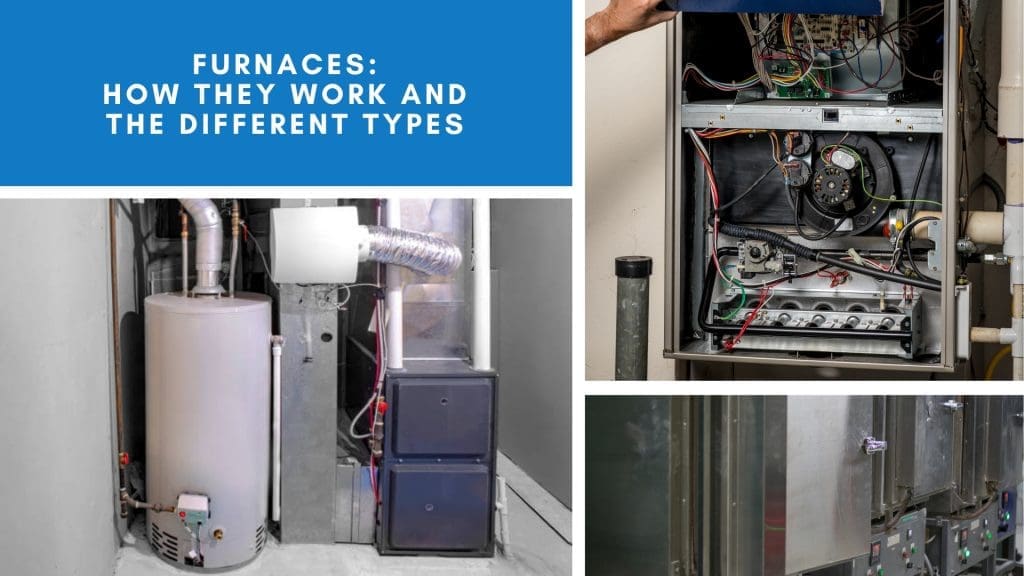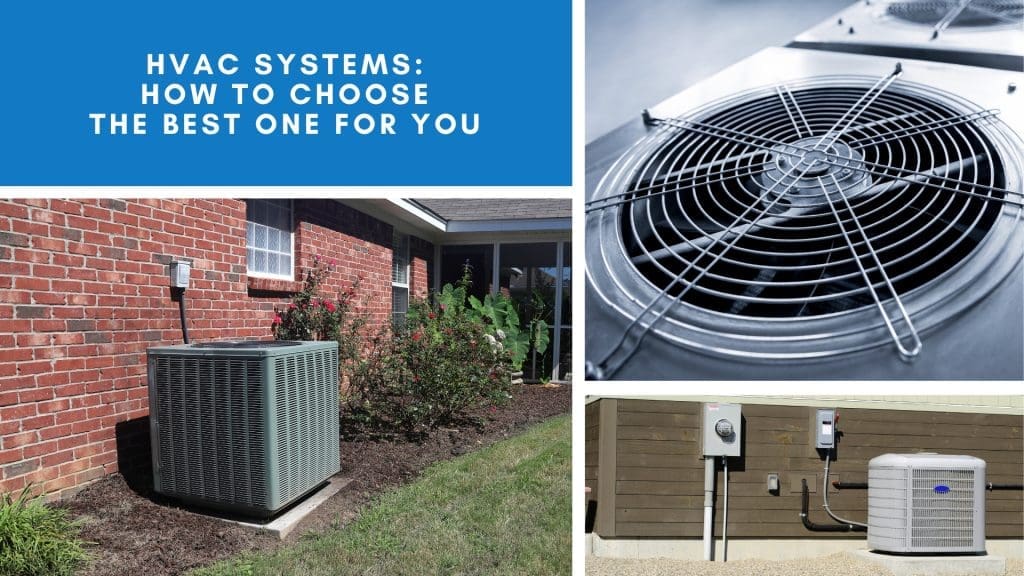If you’re reading this, chances are you’ve asked yourself, “Why is my AC not blowing cold air?” It’s a frustrating problem, especially during the sweltering summer months in Los Angeles. As the owner of LC Heating and Air Conditioning, I understand the urgency of getting your air conditioning unit back to optimal function when dealing with AC Not Cooling Properly.
In this article, we’ll explore common reasons why your AC might not be cooling properly and provide actionable solutions. Remember, while some of these issues can be resolved with a little DIY, don’t hesitate to reach out to a professional if you’re in over your head. Your comfort and safety are paramount.
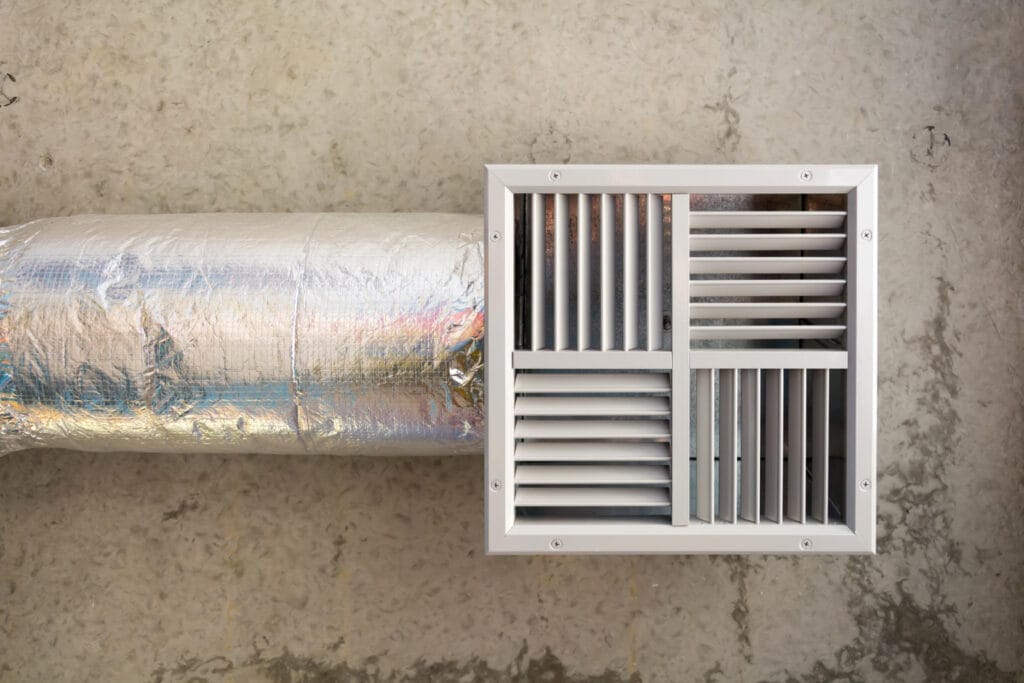
Common Reasons Your AC Isn’t Cooling
Understanding the root cause of why your AC isn’t cooling effectively is crucial in finding the right solution. Several factors can contribute to this issue, ranging from simple fixes to more complex problems. Let’s delve into the most common reasons and how to address them.
Thermostat Issues
Incorrect Settings
Before diving into the mechanical aspects of your air conditioning unit, check the thermostat. Ensure it is set to “cool” and the temperature setting is lower than the current room temperature. Sometimes, a simple adjustment is all it takes.
It’s surprisingly common for thermostat settings to be accidentally changed, especially if there are children in the house. Double-checking the settings can save you time and hassle.
Power and Connectivity Problems
If your thermostat is not responsive or the display is blank, it may need new batteries or a replacement. Smart thermostats might require a Wi-Fi connection to operate correctly, so ensure that your network is functioning properly.
A thermostat that loses power could be a sign of a blown fuse or a tripped circuit breaker. It’s a good idea to inspect these components if your thermostat appears dead.
Thermostat Placement
The location of your thermostat can affect its ability to accurately gauge the temperature. If it’s placed near a heat source or in direct sunlight, it might not function correctly.
Consider relocating the thermostat or shading it if this is a potential issue. A professional can help determine the ideal placement for optimal performance.
Dirty Air Filters
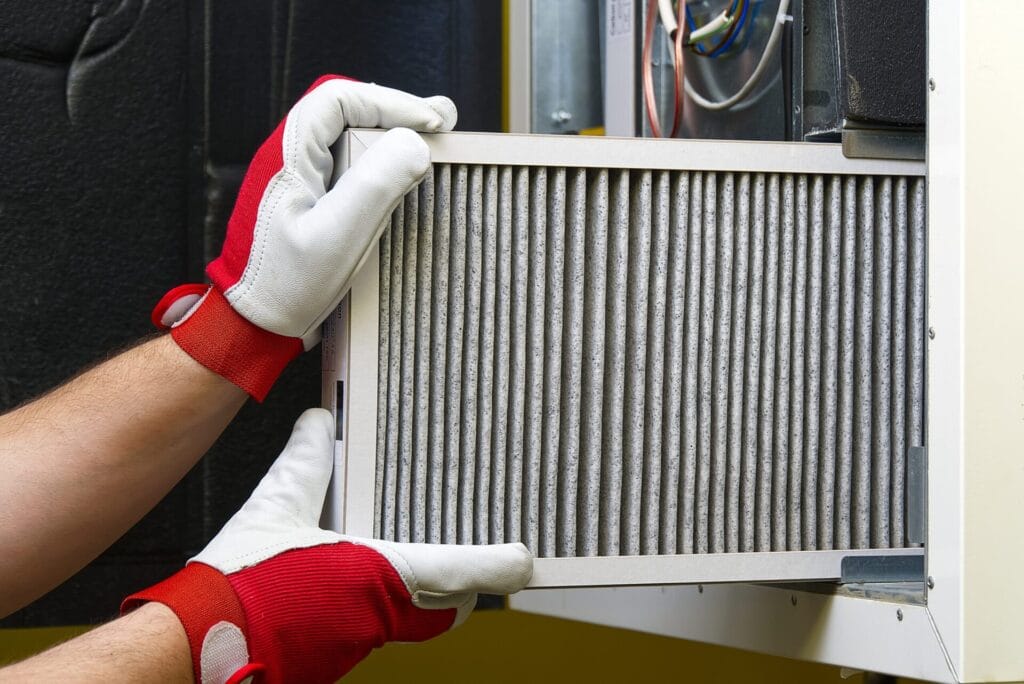
Airflow Obstruction
One of the most common reasons for an air conditioner not blowing cold air is a clogged air filter. When the filter is dirty, airflow is restricted, making it difficult for your AC to circulate cold air.
Restricted airflow can also cause the evaporator coil to freeze, further impeding cooling. Regular filter checks are essential to maintain efficiency.
Identifying Filter Type
To fix this, locate the air filter, which is usually situated in the return air duct or the blower compartment, and inspect it. If it looks dirty or clogged, replace it.
Different AC units may use various types of filters, such as fiberglass, pleated, or HEPA. Knowing the correct type for your system ensures optimal filtration and airflow.
Regular Replacement Schedule
It’s a good practice to check your air filter every month and replace it every 1-3 months, depending on usage and filter type. Households with pets or allergies may require more frequent replacements.
Marking filter change dates on a calendar or setting reminders can help you stay on top of this easy but crucial maintenance task.
Refrigerant Leaks
Signs of a Leak
Refrigerant is the lifeblood of your air conditioning system. If there is a leak, your AC will struggle to cool your home. Signs of a refrigerant leak include the unit not cooling enough, frost buildup on the refrigerant lines, and a hissing sound.
Low refrigerant levels can also cause the compressor to overheat, leading to further damage if not addressed promptly.
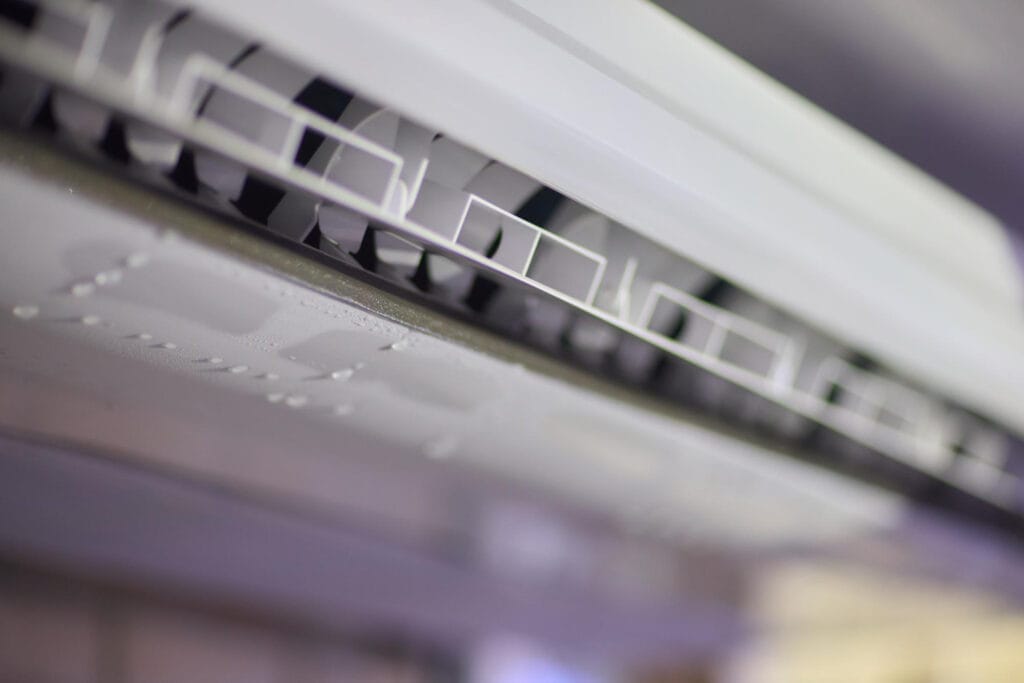
Professional Repair and Recharge
Unfortunately, adding refrigerant isn’t a DIY task. You will need to contact a professional HVAC technician to locate and repair the leak and recharge your system.
Attempting to fix refrigerant issues on your own can be dangerous and may void warranties. Trusting a licensed technician ensures safety and compliance with environmental regulations.
Preventive Measures
Regular maintenance can help prevent refrigerant leaks. An HVAC professional can inspect your system for early signs of wear and tear that might lead to leaks.
Consider scheduling annual check-ups to catch potential problems before they escalate into costly repairs.
AC Not Cooling Properly: Mechanical Failures
Mechanical failures can significantly impact your AC’s ability to cool your home. Understanding the key components and potential issues can help you address these problems more effectively.
Faulty Capacitors
Role of Capacitors
Capacitors are essential for the motor to start and run. If the capacitor is faulty, your AC might not blow cold air. Listen for a humming noise or observe if the unit struggles to start.
Capacitors store and release energy, providing the necessary boost for motors to function. Without them, your AC may not operate properly.
Identifying Capacitor Problems
Replacing a capacitor can be complex and hazardous due to the high voltage. It’s best left to professionals like us at LC Heating and Air Conditioning.
Signs of capacitor issues include delayed start-up, intermittent operation, or the AC shutting off unexpectedly. Prompt attention can prevent further damage.
Professional Replacement
Handling capacitors requires specific tools and expertise. An HVAC technician can safely replace a faulty capacitor and ensure your system operates efficiently.
Regular maintenance checks can help identify weak capacitors before they fail, avoiding unexpected breakdowns.
Broken Compressor
Function of the Compressor
The compressor is responsible for circulating refrigerant through the system. If it fails, the AC can’t cool your home. This can be due to electrical issues, overheating, or wear and tear.
A malfunctioning compressor is a serious issue that requires immediate attention to prevent further damage to the system.
Symptoms of Compressor Failure
A broken compressor often requires a replacement, which is a significant repair. Consult with an HVAC professional to assess the situation and determine the best course of action.
Signs of a failing compressor include reduced cooling capacity, strange noises, or the system tripping the circuit breaker.
Replacement Considerations
Replacing a compressor is a major investment. An HVAC professional can help you weigh the options between repair and replacement, considering factors like the age of the unit and cost-effectiveness.
In some cases, replacing the entire AC unit may be more economical, especially if it’s an older model.
Fan Problems
Importance of Fans in Cooling
Your AC unit relies on fans to move air over the evaporator coils and expel heat outside. If the fan motor is faulty or the blades are damaged, your system’s efficiency will suffer.
Fans play a crucial role in the cooling process, and any disruption can lead to inadequate cooling and increased energy consumption.
Diagnosing Fan Issues
Inspect the fans for visible damage or unusual noises. If you’re comfortable, you can try cleaning the blades or tightening loose screws, but more complex repairs should be handled by a professional.
Fan motors can burn out over time, especially if they have been working overtime due to other system issues.
Repair and Replacement
If fan problems persist, a professional can assess whether repair or replacement is necessary. Ensuring the fans are in good condition helps maintain optimal airflow and system performance.
Regular checks and cleaning can prevent many fan-related issues, prolonging the life of your AC unit.
Blocked or Leaky Ducts
Ductwork plays a vital role in distributing cooled air throughout your home. Issues with ducts can severely impact your AC’s performance.
Identifying Duct Problems
If your home’s ductwork is leaking or blocked, the cool air your AC produces won’t make it into your living spaces. This can result in uneven cooling and increased energy bills.
Signs of duct issues include hot and cold spots, higher energy bills, and dust accumulation near vents.
DIY Inspection Tips
Inspect visible ductwork for damage, and ensure vents are open and unobstructed. If you suspect a ductwork issue, a professional can perform a duct inspection and repair any leaks.
Simple fixes include sealing visible gaps with duct tape and clearing obstructions from vents.
Professional Solutions
Professional duct inspection can identify hidden leaks and blockages, ensuring efficient airflow and comfort in your home.
Consider investing in duct cleaning and sealing services to enhance your AC’s performance and reduce energy costs.
External Factors
External conditions and obstacles can affect your AC’s ability to cool effectively. Being aware of these factors can help you address potential issues.
Outdoor Unit Obstructions
Importance of Airflow
The outdoor unit of your air conditioner needs adequate airflow to function properly. If it’s blocked by leaves, debris, or overgrown plants, this can hinder performance.
Restricted airflow can cause the system to overheat and reduce its cooling capacity.
Maintenance and Clearance
Ensure there is at least two feet of clearance around the unit. Regularly clean the area and remove any obstructions to maintain optimal airflow.
Consider setting a routine to check and clear the area around the outdoor unit, especially during fall when leaves are abundant.
Professional Landscaping Tips
Professional landscaping can ensure that your outdoor unit remains unobstructed by plants or debris. Choose plants that won’t shed excessively or grow too close to the unit.
An HVAC technician can also provide guidance on maintaining proper airflow around the unit.
Power Supply Issues
Ensuring Power Connectivity
Ensure your AC unit is receiving power. Check the circuit breaker and reset it if necessary. Also, inspect the power cord and connections for any visible damage.
Loose or damaged connections can interrupt power supply, affecting the AC’s operation.
Troubleshooting Power Problems
If resetting the circuit breaker doesn’t solve the issue, there may be underlying electrical problems. A professional electrician or HVAC technician can diagnose and fix complex electrical issues.
Regularly inspecting your electrical panel and connections can prevent unexpected power disruptions.
Safety Precautions
Handling electrical components requires caution. Always turn off power before inspecting or working on electrical connections to prevent accidents.
If you’re unsure about handling electrical issues, it’s best to consult a professional to ensure safety and compliance with local codes.
Preventive Maintenance
Regular maintenance is key to preventing issues with your air conditioning system. Schedule annual tune-ups with a professional HVAC technician to keep your system running efficiently. Regular maintenance includes checking refrigerant levels, inspecting and cleaning components, and ensuring all parts are in working order.
Importance of Regular Check-Ups
Preventive maintenance helps catch potential issues before they become major problems, prolonging the life of your AC unit.
A well-maintained system operates more efficiently, saving you money on energy bills and reducing the risk of unexpected breakdowns.
Components to Inspect
During maintenance, key components like the compressor, fans, and electrical connections are inspected. Cleaning the condenser and evaporator coils improves efficiency and cooling capacity.
Regularly replacing air filters and checking refrigerant levels are simple yet effective maintenance tasks.
Choosing the Right Service Provider
Selecting a reputable HVAC service provider ensures quality maintenance and peace of mind. Look for licensed and experienced professionals who offer comprehensive maintenance packages.
LC Heating and Air Conditioning provides reliable, high-quality service, ensuring your AC remains in top condition year-round.
When to Call a Professional
While some AC problems can be resolved with a bit of troubleshooting, others require the expertise of a seasoned HVAC professional. If you’re unable to fix the issue, or if you’re dealing with refrigerant leaks, electrical problems, or mechanical failures, it’s time to call in the experts.
Identifying Complex Issues
Knowing when to call a professional can save you time and prevent further damage to your AC unit. Complex issues like refrigerant leaks, electrical failures, and compressor problems are best handled by experts.
Attempting DIY repairs on these issues can be dangerous and may void warranties.
Benefits of Professional Service
At LC Heating and Air Conditioning, we pride ourselves on providing reliable, high-quality service to our community. We’re here to ensure your home stays comfortable year-round.
Our technicians are trained to handle a wide range of issues, offering peace of mind and expert solutions.
Scheduling a Service
For more information or to schedule a service, visit our website at lahvaclc.com or give us a call at (818) 858-7080.
Whether you need a simple tune-up or a major repair, our team is ready to assist you with all your HVAC needs.
In conclusion, while there are several reasons why your air conditioner may not be blowing cold air, many of them can be addressed with a bit of investigation and simple maintenance. However, for more complex issues, don’t hesitate to contact a professional. Your comfort is worth it.

